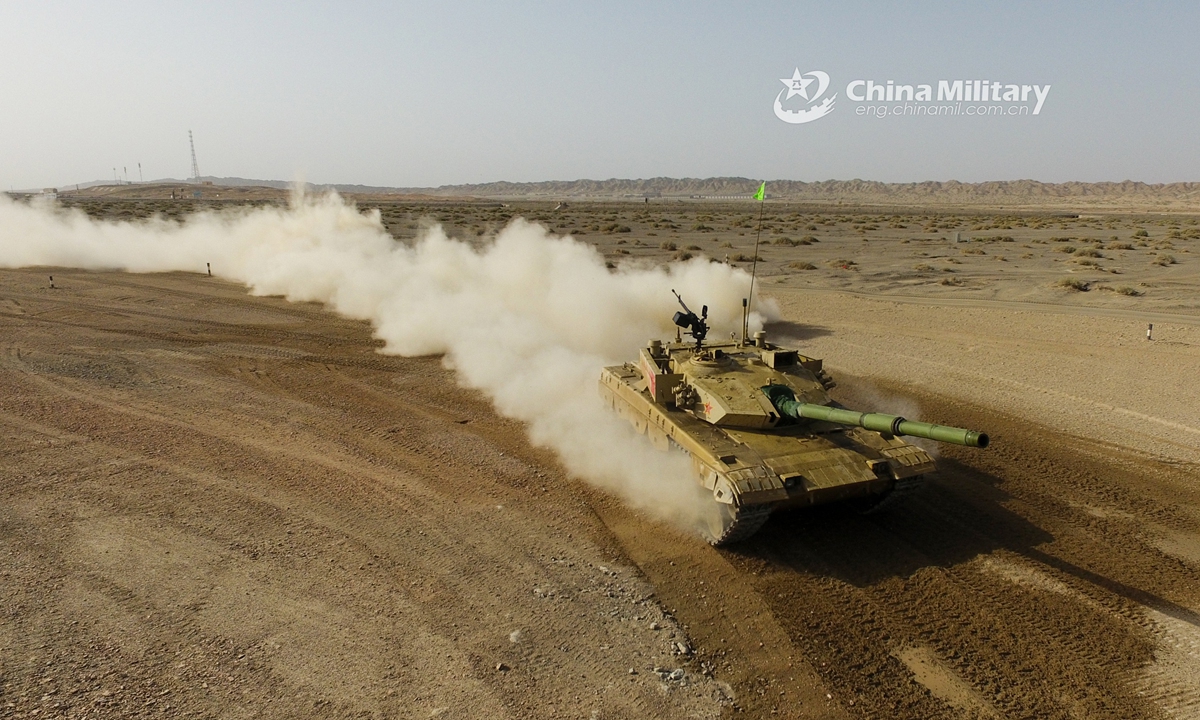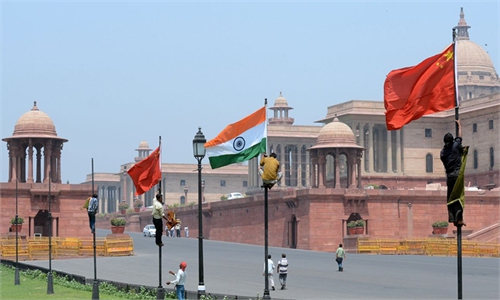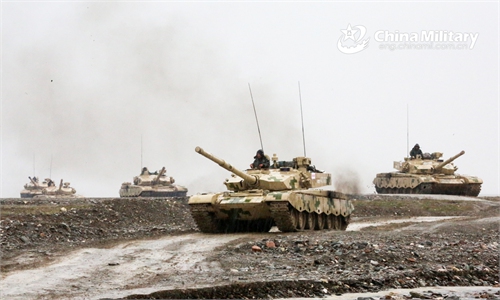
A main battle tank (MBT) attached to a combined arms brigade under the PLA 78th Group Army rumbles through a mound of dust in speed during the individual race of a driving skills training exercise in northwest China's Gobi desert on June 28, 2020. (eng.chinamil.com.cn/Photo by Zhang Jujun and Zhang Zhihao)
China had deployed a variety of advanced weapons fit for high-altitude combat to the country's western plateau regions as India continued to move forces and hold drills amid border tensions between the two countries, media reported.
The Chinese deployment came before the latest consensus reached by both countries on de-escalating border tensions, as the two sides have now agreed on the disengagement of frontline soldiers.
The weapons, including the PHL-03 and PHL-11 self-propelled multiple rocket launcher systems, PCL-181 vehicle-mounted howitzers, HJ-10 anti-tank missiles, towed 35mm anti-aircraft guns, Type 15 light tanks and Z-10 attack helicopters were deployed to Northwest China's high-altitude desert regions and Southwest China's Qinghai-Tibet Plateau, according to several reports by China Central Television (CCTV) over the past week.
These weapons are very useful at high altitudes as many are specially designed for plateau operations with the lack of oxygen in such regions taken into account, the reports said.
An Indian report on Tuesday said that India recently held drills featuring aircraft including Apache attack helicopters at a forward base near the Line of Actual Control. India has also deployed T-90 tanks to the Galwan Valley, a separate Indian report said in late June.
A Chinese military expert told the Global Times on Tuesday under condition of anonymity that the Chinese weapons were carefully selected to best suit high-altitude warfare and combat potential enemies' weapons of choice.
China's rockets and artillery can target hostile fortifications and other ground targets, anti-aircraft guns can clear the sky, anti-tank missiles and attack helicopters can wipe out enemy tanks, and friendly tanks can take the ground, the expert said.
Despite these military deployments and mobilizations from both sides, the border situation is on the right path to ease following a consensus reached by the Chinese Special Representative of the China-India Boundary Question, State Councilor and Foreign Minister Wang Yi and Indian National Security Advisor Ajit Doval on Sunday.
Both sides welcomed the progress achieved in the recent military and diplomatic meetings, agreed to stay in dialogue and consultation, and stressed the importance to act on the consensus reached in the commander-level talks between bilateral border troops, to complete disengagement of the frontline troops as soon as possible, according to China's Foreign Ministry.
China and India have held three rounds of commander-level talks since early June, with the latest one on June 30 making progress on disengaging troops.
Chinese analysts said that China would welcome talks and de-escalation, but the Chinese military will remain prepared if the Indians again make any provocative moves.



